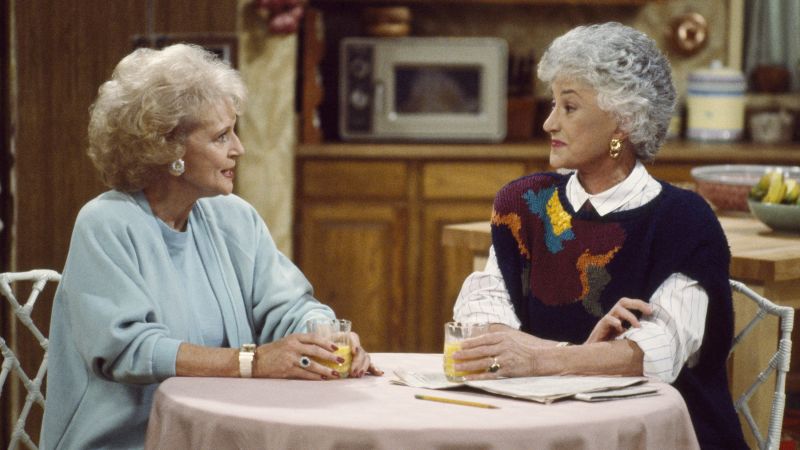Thank youBetty Whiteand Bea Arthur for being a friend on “The Golden Girls,” even though those behind the show now say it was all an act.
The tea was spilled during a panel of writers, producers and others who worked on the show held at NeueHouse Hollywood on Wednesday evening as part of the monthlong Pride LIVE! Hollywood festival,according to The Hollywood Reporter.
“When that red light was on (and the show was filming), there were no more professional people than those women,” said co-producer Marsha Posner Williams of Arthur and White – who played Dorothy Zbornak and Rose Nylund, respectively – “but when the red light was off, those two couldn’t warm up to each other if they were cremated together.”
Williams also said Arthur “used to call me at home and say, ‘I just ran into that c—” – referring to White, using the c-word – “at the grocery store. I’m gonna write her a letter,’ and I said, ‘Bea, just get over it for crying out loud. Just get past it.’”
And it happened more than once.
“I remember, my husband and I went over to Bea’s house a couple of times for dinner. Within 30 seconds of walking in the door, the c-word came out,” Williams said of Arthur’s continued off-color references to White.
“The Golden Girls” ran from 1985 to 1992 on NBC, and is now celebrating its 40th anniversary. In addition to White and Arthur, Rue McClanahan starred as Blanche Devereaux and Estelle Getty as Sophia Petrillo. The show revolved around a quartet of female retirees in Florida and explored their friendships with one another.
Williams added at the event this week that the hit series “would have continued after seven years,” but didn’t, most likely due to the feud between the two actresses.
“Their contracts were up and … the executives went to the ladies, and Estelle said, ‘Yes, let’s keep going,’ and Rue said, ‘Yes let’s keep going,’ and Betty said, ‘Yes, let’s keep going,’” Williams recalled. “And Bea said ‘no f–king way,’ and that’s why that show didn’t continue. … And Betty would break character in the middle of the show (and talk to the live audience), and Bea hated that.”
Theories as to why the women didn’t like each other ranged from White getting more applause from the audience during the cast introductions, to Arthur coming from a more theatrical background than White, who found fame on TV.
Panelist and series writer Stan Zimmerman also discussed how despite there being LGBTQ+ storylines – including aquickly-scrubbed gay housekeeper characterin the pilot, and Blanche’s brother coming out as gay – he felt he had to remain closeted during those times, and received support behind the scenes.
“Our first day on the set, we noticed Estelle come running towards us, and she’s like … ‘I know. Your secret’s safe with me. You’re one of us,’” Zimmerman sad. “I thought she meant Jewish. But she meant gay. She wasn’t gay, but she was probably the first ally ever.”
In addition to being a huge mainstream hit, “The Golden Girls” has a special place in LGBTQ+ culture thanks, in part, to the ladies’ biting humor and retro styling. The show racked up 11 Primetime Emmys over the course of its run.
Getty died in 2008, Arthur in 2009, McClanahan in 2010 and White in 2021.
